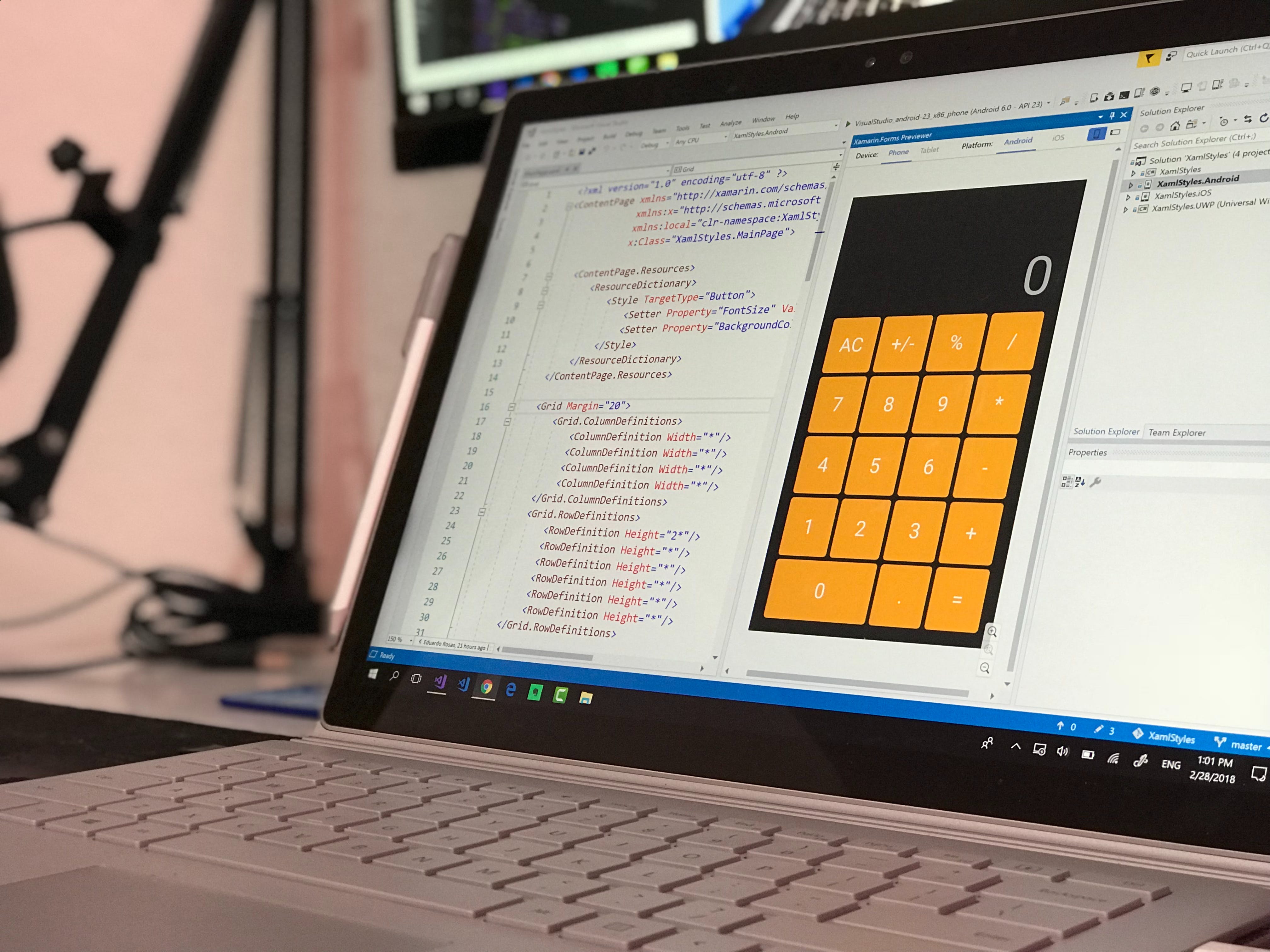In today’s fast-paced digital world, mobile application development has emerged as a cornerstone for businesses aiming to enhance their customer engagement and streamline operations. But what makes mobile application development unique? At its core, mobile app development involves creating software applications that run on mobile devices, employing a blend of unique design principles, user experience strategies, and advanced technologies. These applications are tailor-made to meet the specific needs of users, providing them with a seamless and intuitive interface.
Unlike traditional software development, mobile app development must consider various factors such as device diversity, operating system variations, and network conditions. This complexity requires a meticulous approach to ensure that the app performs flawlessly across different platforms. Furthermore, the integration of features like GPS, camera, and push notifications adds another layer of uniqueness to mobile apps, making them more interactive and user-friendly.
At Biz4Solutions, we specialize in crafting bespoke mobile applications that not only meet but exceed your expectations. Our team of experts leverages the latest technologies and best practices to deliver apps that are robust, scalable, and highly engaging. Explore our services to transform your business ideas into innovative mobile solutions that stand out in the crowded marketplace.
Personalized User Experiences
Personalization is at the heart of what makes mobile application development unique. Unlike generic software applications, mobile apps can be tailored to meet the specific preferences and behaviors of individual users. This level of customization significantly enhances user satisfaction and engagement.
Mobile applications leverage data analytics and machine learning algorithms to deliver personalized experiences. By analyzing user data, such as browsing history, location, and in-app behavior, developers can create apps that offer content and features relevant to each user. For instance, a shopping app can recommend products based on previous purchases, while a fitness app can suggest workout routines tailored to the user’s fitness level and goals.
Moreover, mobile apps can incorporate features such as push notifications and in-app messages to keep users engaged. These features can be personalized to notify users about new offers, updates, or reminders that are specifically relevant to them. Such targeted communication helps in building a strong relationship with users, encouraging them to stay loyal to the app.
Incorporating personalized user experiences is crucial for the success of a mobile application. It not only improves user retention but also fosters a sense of connection between the user and the app. As a result, businesses can achieve higher customer satisfaction and drive sustainable growth.
Integration with Advanced Technologies

One of the defining characteristics of modern mobile application development is the seamless integration with advanced technologies. This integration not only enhances the functionality of mobile apps but also provides users with cutting-edge features that set these applications apart.
Technologies such as Artificial Intelligence (AI) and Machine Learning (ML) play a pivotal role in making mobile apps smarter. AI algorithms can process vast amounts of data to recognize patterns and make predictions, enabling features like voice recognition, image processing, and personalized recommendations. ML, on the other hand, helps apps learn from user interactions to continuously improve their performance and relevance.
Another transformative technology is Augmented Reality (AR) and Virtual Reality (VR). These technologies create immersive experiences that enhance user engagement. For example, AR can be used in retail apps to allow users to visualize products in their real-world environment, while VR can offer virtual tours in real estate or travel apps.
Additionally, the integration of Internet of Things (IoT) enables mobile apps to communicate with smart devices. This is particularly valuable in sectors like healthcare, where apps can monitor patient data in real-time, or in home automation, where users can control appliances through their smartphones.
By leveraging these advanced technologies, mobile applications are no longer just tools but become integral parts of users’ daily lives. This integration not only enhances user experience but also empowers businesses to offer innovative solutions that meet the evolving needs of their customers.
Cross-Platform Compatibility Challenges

One of the primary challenges in mobile application development is ensuring cross-platform compatibility. With the diversity of devices and operating systems available today, developers must create applications that function seamlessly across different platforms, such as iOS, Android, and even web-based environments.
Each platform has its own set of guidelines, programming languages, and user interface design principles. For instance, iOS apps are typically developed using Swift or Objective-C, while Android apps use Java or Kotlin. Ensuring that an application performs optimally on both platforms requires extensive testing and often double the development effort. This can lead to increased costs and longer development cycles.
Moreover, user experience (UX) can vary significantly between platforms. Elements like navigation patterns, gestures, and even visual aesthetics may need to be tailored to meet the expectations of users on different devices. What works well on an iPhone might not translate seamlessly to an Android device, and vice versa.
Another challenge is maintaining consistent performance. Different platforms have various hardware capabilities, and an app that runs smoothly on a high-end device might experience lag or crashes on a lower-end one. Developers need to optimize their code to ensure that the app delivers a reliable and efficient performance across all devices.
Despite these challenges, achieving cross-platform compatibility is crucial for reaching a broader audience. Tools like React Native and Flutter have emerged to help developers build cross-platform apps more efficiently. These frameworks allow for a single codebase to be used across multiple platforms, reducing development time and effort while maintaining quality and performance.
Security Concerns in Mobile Apps

Security is a critical aspect of mobile application development, as mobile apps often handle sensitive user data, including personal information, financial details, and even healthcare records. Ensuring robust security measures is paramount to protect both the users and the reputation of the app developer.
One of the primary concerns is data encryption. Effective encryption techniques are essential to safeguard data during transmission and storage. Developers must implement strong encryption protocols to prevent unauthorized access and data breaches. The use of SSL/TLS protocols for data in transit and AES encryption for data at rest are industry standards that must be adhered to.
Authentication and authorization mechanisms are also crucial. Implementing multi-factor authentication (MFA) can significantly enhance security by requiring users to provide multiple forms of verification before accessing the app. Additionally, using OAuth or other secure authorization frameworks ensures that only authenticated users can access specific functionalities within the app.
Another significant concern is the management of API security. Many mobile apps rely on APIs to communicate with backend servers. Ensuring that these APIs are secure and free from vulnerabilities is vital. Practices such as implementing API gateways, using secure API tokens, and regularly updating API security protocols can mitigate potential risks.
Moreover, developers must be vigilant about potential vulnerabilities in third-party libraries and frameworks. Regularly updating and patching these components is crucial to prevent exploitation by malicious actors. Conducting thorough code reviews and security testing, such as penetration testing and vulnerability scanning, can help identify and rectify security flaws before they become problematic.
Ultimately, building a secure mobile app requires a comprehensive approach that encompasses encryption, authentication, API security, and ongoing vigilance. By prioritizing security at every stage of development, developers can protect their users and build trust in their applications.
Future Trends in Mobile Application Development

The future of mobile application development promises to be exciting, shaped by rapid technological advancements and evolving user expectations. As businesses strive to stay competitive, understanding these trends is essential for delivering innovative and impactful mobile solutions.
One of the most transformative trends is the integration of Artificial Intelligence (AI) and Machine Learning (ML). These technologies enable apps to offer personalized user experiences, predictive analytics, and intelligent automation. From virtual assistants to recommendation engines, AI and ML are set to revolutionize how users interact with mobile applications.
Another significant trend is the rise of Augmented Reality (AR) and Virtual Reality (VR). These immersive technologies are finding applications beyond gaming and entertainment, such as in retail, real estate, and education. AR and VR can provide users with interactive and engaging experiences, bridging the gap between the digital and physical worlds.
The advent of 5G technology is also poised to make a substantial impact. With its ultra-fast speeds and low latency, 5G will enhance the performance of mobile apps, enabling real-time data processing, high-quality video streaming, and seamless IoT integration. This will open up new possibilities for app developers to create more sophisticated and responsive applications.
Blockchain technology is another trend gaining momentum. Its decentralized nature offers enhanced security and transparency, making it ideal for applications in finance, supply chain management, and healthcare. By leveraging blockchain, developers can build apps that are not only secure but also trustworthy.
Lastly, the focus on cross-platform development is expected to grow. Tools like Flutter and React Native allow developers to create apps that work seamlessly across multiple platforms, reducing development time and costs while ensuring a consistent user experience.
As these trends continue to evolve, staying ahead of the curve will be crucial for businesses looking to leverage mobile technology effectively. At Biz4Solutions, we are committed to harnessing these innovations to deliver cutting-edge mobile applications that drive success. Explore our services and discover how we can help propel your business into the future.
